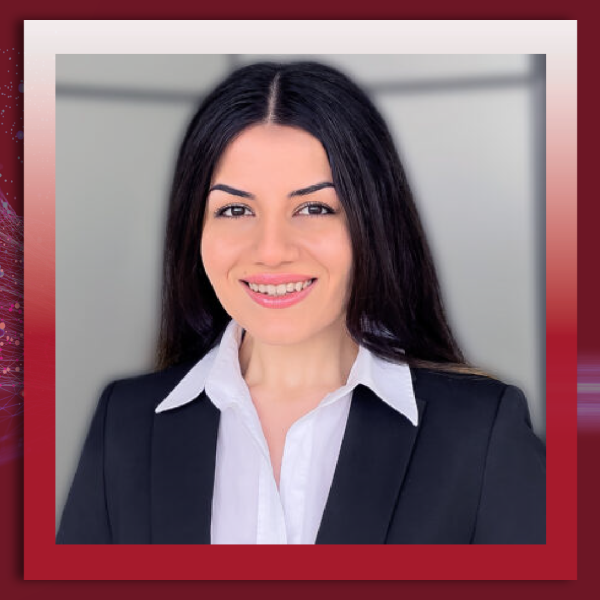October 26, 2023
Mehrnaz Sabet is a doctoral candidate in information science with a minor in computer science from Shiraz, Iran. She earned her B.Sc. in computer engineering at the University of Tehran and now studies human-autonomy learning under the guidance of Susan Fussell at Cornell.
What is your area of research and why is it important?
I work on autonomous systems, and I study human-autonomy teaming, which is basically looking at how to advance a robot’s ability to perform tasks without external control when they are to conduct those tasks by working alongside humans. More specifically, my research is focused on aerial autonomy, so I design and develop drone systems to understand how we can reliably increase drone autonomy when drones are deployed to work with humans in time-critical applications such as search and rescue operations.
What are the larger implications of this research?
Increasing advancements in robot autonomy call for a shift in the human role from being constantly in control to control by exception. As we push for increased autonomy, specifically in drones, it becomes more and more important to understand how we design and advance autonomy in a way that is not only reliable but is also reflective of the real-world operation scenarios where these drones would need to work alongside other actors in various missions and environments. Without such autonomy, there are increasing risks for failures and increased workload for humans to manually operate the drones instead of focusing on more critical tasks.
You are currently working to build an industry-academia partnership with the goal of inspiring applied research projects in academia informed by industry challenges with autonomous systems. Can you tell us about the project?
This project is called Shaping Autonomy with the mission to bridge the gap between industry and academia by bringing the research and engineering community together to advance the field of autonomous systems. In my own work, I’ve had the opportunity to talk with many industry experts to learn about the challenges and use those learnings to inform my research path. While doing that, I realized that many other students are working on problems that are not necessarily informed by real-world applications or are struggling to make their contributions meaningful to the industry. Meanwhile, the industry seeks to leverage research through applied projects to address the technical challenges. I believe this gap calls for a new collaborative model to be adapted in this area, and this is what motivates Shaping Autonomy.
What do you hope to accomplish through this industry-academia partnership and with this project?
I’m looking forward to bringing awareness to the challenges that exist in the industry so that we can use those challenges to inspire research projects with real-world applications. I’ve talked with many graduate students in this field who wish they could find the applications of their research and understand a project’s impact on the industry. The outcome that motivates me the most is to enable multi-institutional collaborations for projects and papers so that we can work on proposing solutions for critical problems that go beyond a single lab, or team, which I believe can truly make a difference in advancing the field of autonomous systems and shaping its future.
President Pollack has designated this academic year’s theme as freedom of expression. What does freedom of expression mean to you?
A big part of freedom of expression for me is to pursue new ideas, especially in an academic environment. I think I felt this freedom by heart when starting this project because as soon as this was started, people from both industry and academia reached out to me to talk about how there has always been a need for someone to take the initiative and how much this is needed for the field and I’m happy I did it. It feels like I took a step forward toward this year’s theme to feel free and fearless to embrace new ideas.
What are your hobbies or interests outside of your research or scholarship?
I love art, and it gives me peace; I do graphic design and photography whenever possible. I also love to read, and I often grab a book and spend my time reading when I’m not working.
Why did you choose Cornell to pursue your degree?
The biggest thing for me is the collaborative environment that we have at Cornell. My field is quite multi-disciplinary, and without collaboration across the fields relating to my research, I wouldn’t have been able to look at a problem from different perspectives. I think we have a unique environment where I personally have been able to work with people from different departments and learn about different things, which has helped me advance in my path. This spirit of collaboration has also helped me to inspire projects like Shaping Autonomy, which is built on bringing different people together to work on a problem.



